Art World
An Iconic Frank Lloyd Wright-Designed Home Hits the Market for $1.8 Million
The Winn House in Michigan is a prime example of a Usonian home.
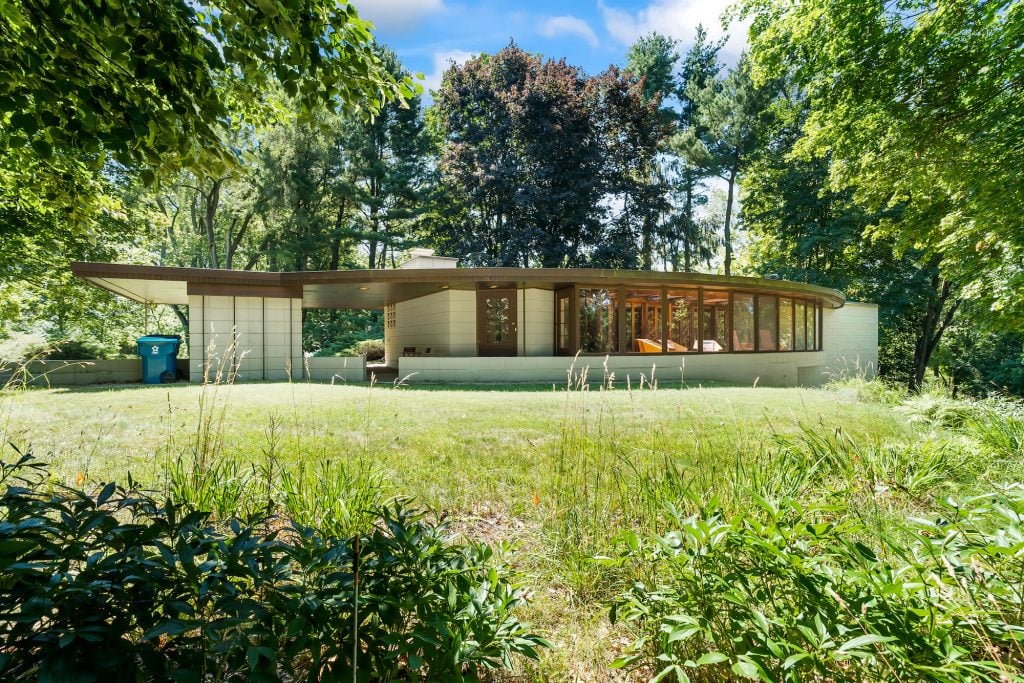
The Winn House in Michigan is a prime example of a Usonian home.

Adnan Qiblawi

The Winn House, a stunning Frank Lloyd Wright Usonian home, has come on the market in Kalamazoo, Michigan for $1.8 million. The 2,469 square-foot home features three bedrooms and two and a half baths.
According to realtor.com, the sellers first purchased the Robert D. and Winifred L. Winn House in 2012 for $200,000 and then spent $800,000 on renovations including new cement floors, a patio skylight, and new interior plywood. They also restored the living room furniture and updated the electrical and plumbing systems.
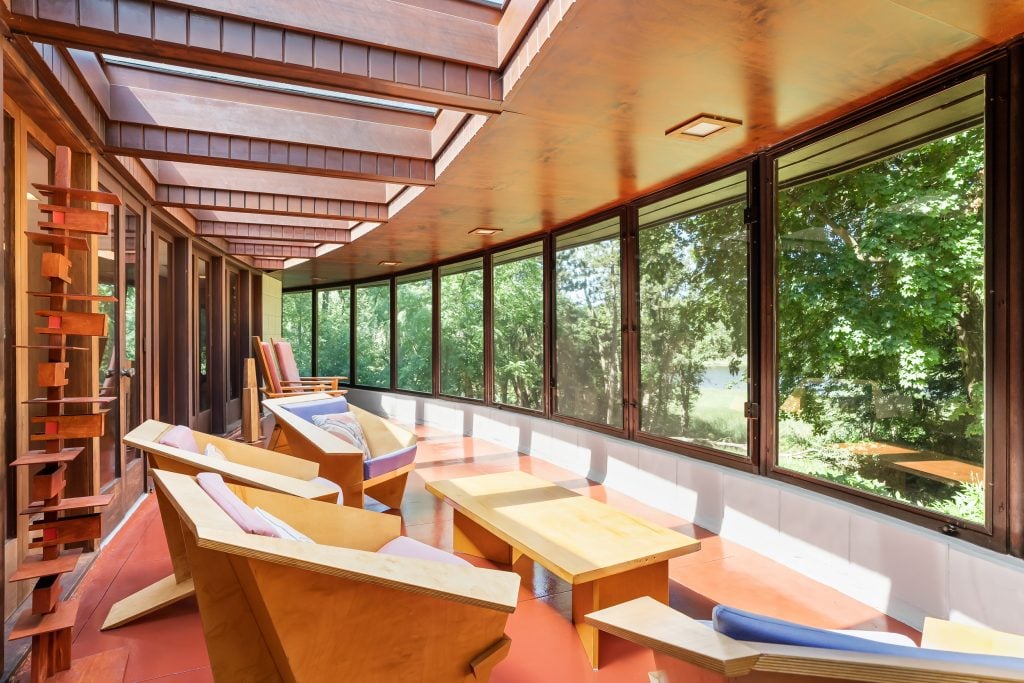
The interior of the Winn House. Courtesy Fred Taber at Jacqua Realtors
A Usonian masterpiece, the Winn House was completed in 1950, the last house designed by Wright that was built in the neighborhood. Usonian homes are characterized by simple, native building materials, and are typically one-story, featuring open floor plan designs. Winn House is atypical with its two stories. Wright, a pioneer of organic architecture, designed homes in harmony with the landscape they were built on.
Accordingly, the Winn House is cantilevered over a hillside and features a curved facade, walls of windows, and an enclosed porch. The home is the only Usonian in Kalamazoo with forced air instead of radiant floor heating, allowing homeowners more control of their space.
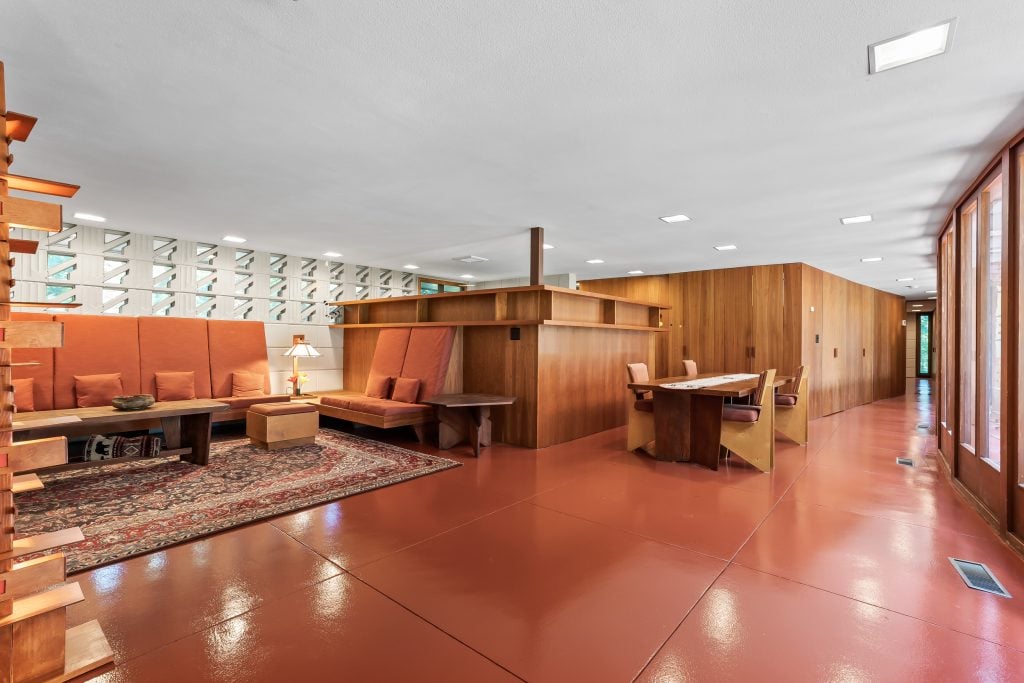
The interior of the Winn House. Courtesy Fred Taber at Jacqua Realtors
The property is located in Parkwyn Village, a neighborhood that was added to the National Register of Historic Places in 2022. The village was designed by Wright in the 1940s when it was founded by a collective of young families who wrote to the architect, hoping he would agree to plan a community on their recently purchased land. Wright obliged and laid out a neighborhood consisting of 40 roughly one-acre plots. He completed the district with communal playgrounds, gardens, and tennis courts spread over an additional seven acres.
With views of Lake Little Asylum, the house is the only waterfront property in the neighborhood. It is situated on 2.3 acres, making it the only Wright-designed home on two lots, which lends it an added degree of privacy. The home’s flat roof and carport are also quintessentially Usonian.
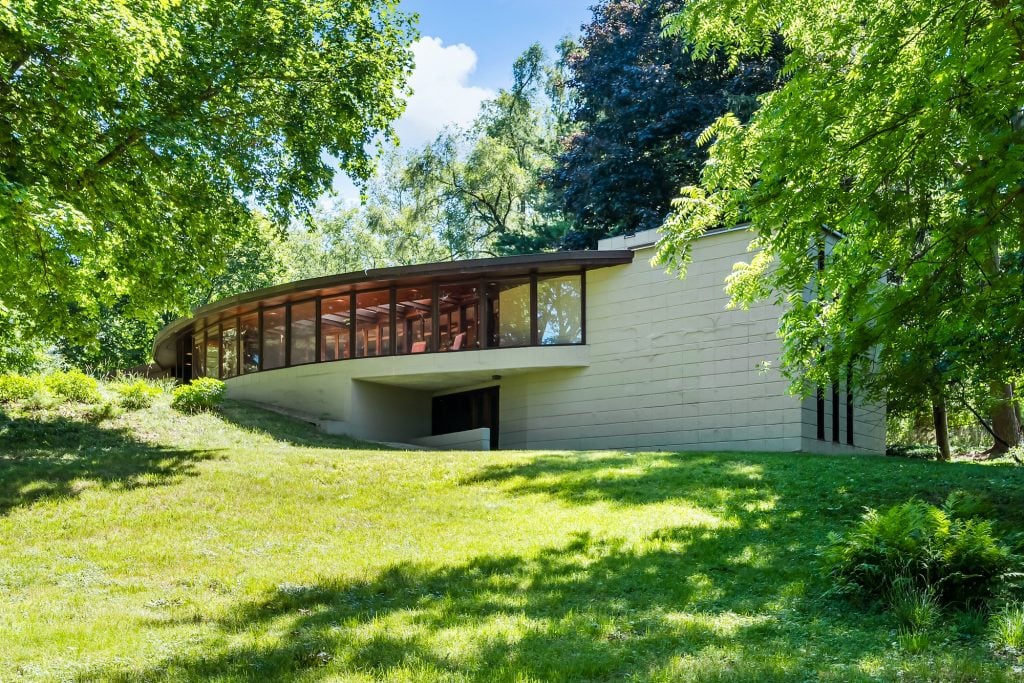
The exterior of the Winn House. Courtesy Fred Taber at Jacqua Realtors
There are only eight Frank Lloyd Wright Usonians in all of Kalamazoo county. Four exist at the Acres in Galesburg, where a duo of homes sold for $4.5 million last fall. The other four are in Parkwyn Village, and include the Winn House and the McCartney House. Considered one of Wright’s most dramatic designs, the McCartney House was listed for sale in March and recently sold for $670,000.
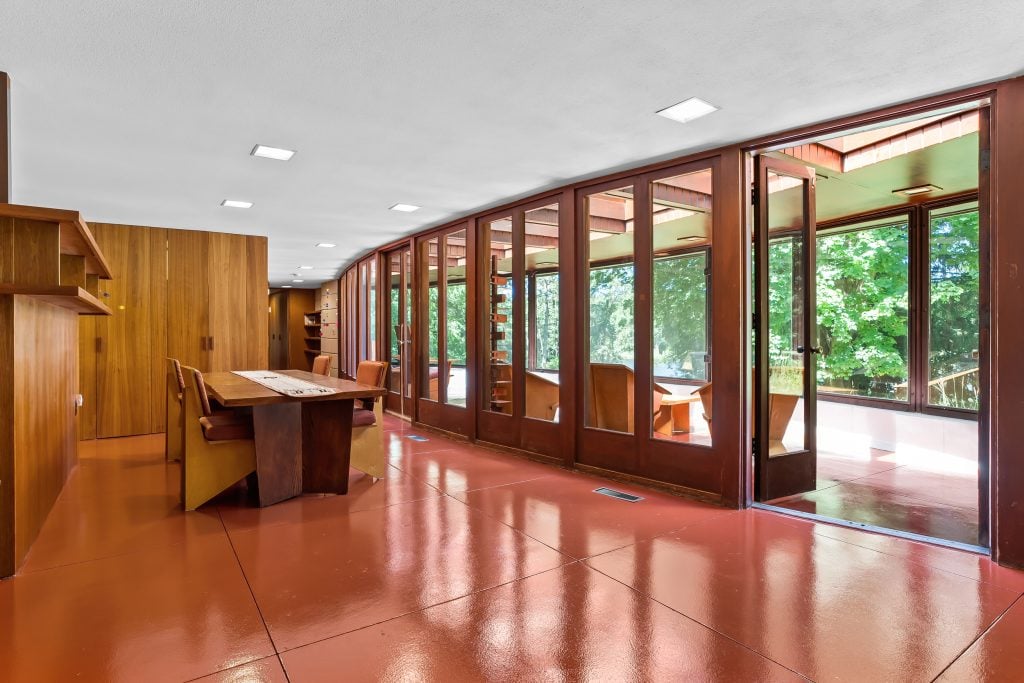
The interior of the Winn House. Courtesy Fred Taber at Jacqua Realtors
The American Institute of Architects celebrates Frank Lloyd Wright as “the greatest American architect of all time,” with a 70-year career beginning in the late 1880s. His Usonian homes were a response to the Great Depression. When the United States and the rest of the world plunged into a profound financial struggle in the 1930s, he began working on affordable housing, approaching residential construction with a stripped down mindset, considerate of the financial and social realities of the era.
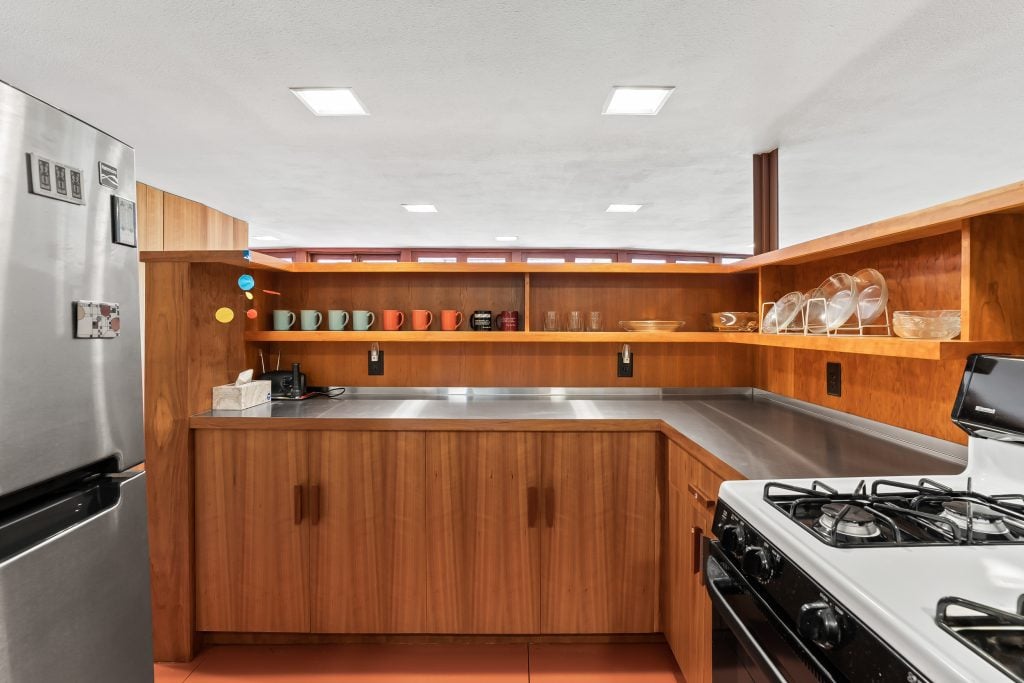
The interior of the Winn House. Courtesy Fred Taber at Jacqua Realtors
With Usonian homes, Wright was realizing simple, effective, and beautiful designs for everyday Americans, while pioneering an architectural practice that was uniquely American and uninfluenced by any international conventions that preceded it. He proposed the term “Usonion” as an alternative to “American,” as it distinguished the character of the urban landscape.
Wright continued to design these homes with varying degrees of grandeur for the rest of his career. They were reflective of diverse client budgets and his commitment to creating affordable, aesthetically pleasing, and sustainable living spaces for the American public.